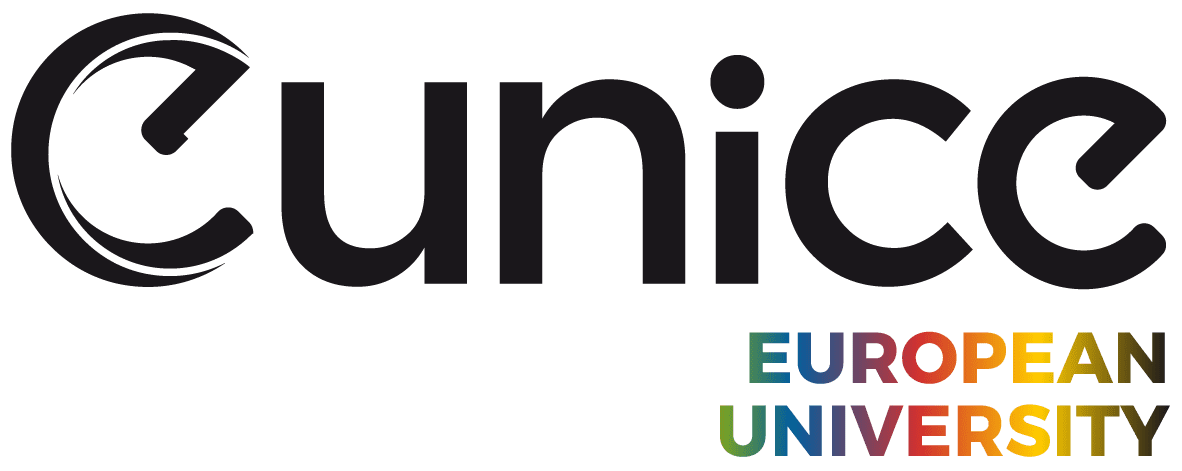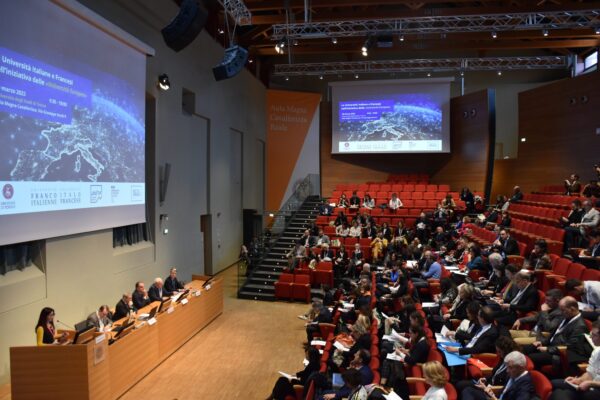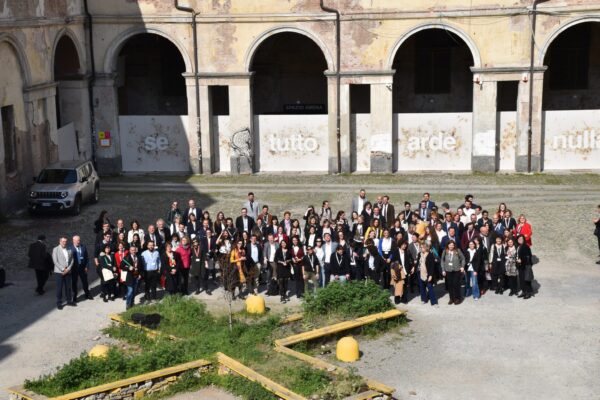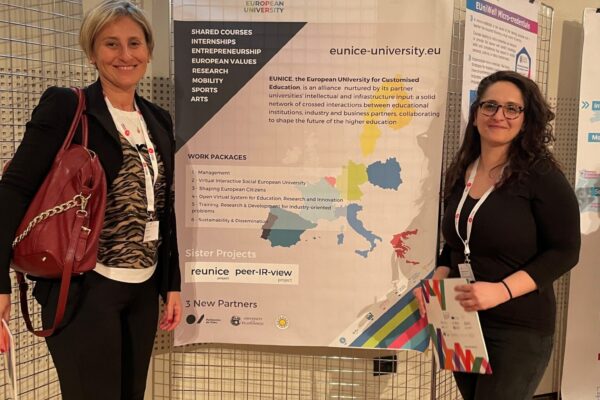This event was an opportunity for Italian and French universities participating in the European Universities Initiative to meet and exchange good practices and know-how
On Thursday, 30 March 2023, EUNICE staff participated in the congress for European universities that took place at the University of Turin (Italy), among Italian and French universities staff. This gathering was an opportunity for those involved in the European Universities Initiative met in Turin (Italy) to exchange knowledge and best practices, and to become aware of sharing the same values and vision for the future, to face common challenges and build a European higher education and research area together within the European alliances and student initiatives.
“It was an opportunity to compare with other Italian and French universities that are part of the European alliances and to exchange good practices,” said Prof. Cristina Satriano from EUNICE partner University of Catania (Italy), “Participation of students was very positive,” she added.
The congress was organised by the Italian-French University, which promotes academic and scientific collaboration between Italy and France, and the University of Turin, leader of the European University alliance UNITA – Universitas Montium.
The long-standing Italian-French collaboration in higher education and research is strengthened and confirmed under the European Universities Initiative, funded by the European Commission. To date, the European Universities Initiative involves more than 340 institutions in 31 countries for a total of 44 existing alliances; among them, 24 involved at least one Italian and one French partner, for a total of more than 50 institutions.
Over 30 alliances, over 60 universities and institutions from Italy, France and many other countries participated in the event. EUNICE was present, as its partners included the University of Catania (Italy) and Université Polytechnique Hauts-de-France (France).
After institutional greetings by the Rector of the University of Turin, the Presidents of Italian-French and Franco-German Universities, the congress opened with a plenary session on the state of the art of European alliances, attended by Vanessa Debiais-Sainton, Director for Higher Education at the European Commission, and representatives of the Italian and French Ministries of Education, Universities and Research.
This was followed by four thematic workshops on Education (Innovative learning paths within the Alliances), Mobility (Mobility formats for the EU Inter-university ‘campus’), Research and Innovation (R&I and entrepreneurship for the local ecosystems), and Student’s engagement in the Alliances. The following plenary session was attended by the Executive Board of ANVUR (National Agency for the Evaluation of the University System and Research), the President of HCERES (French High Council for the Evaluation of Research and Higher Education) and other representatives of the European Universities Community. Concluding remarks in the presence of Christian Masset, French Ambassador to Italy.
About EUNICE
EUNICE, the European University for Customised Education, is nurtured by ten universities’ intellectual and infrastructure input –Poznań University of Technology (Poland), Brandenburg University of Technology (Germany), University of Cantabria (Spain), University of Mons (Belgium), University of Catania (Italy), Université Polytechnique Hauts-de-France (France), University of Vaasa (Finland), Polytechnic Institute of Viseu (Portugal), University of Peloponnese (Greece) and University of Karlstad (Sweden)–.
This alliance, born from the European Universities initiative and funded by the European Commission, is building a solid network of interactions between educational institutions and other agents to work on social and economic challenges. Since 2022 EUNICE offers a wide catalogue of online and blended courses and international internships that Bachelor, Master and PhD student of the member universities can enrol and may get recognised as part of their formal academic degree with ECTS.








